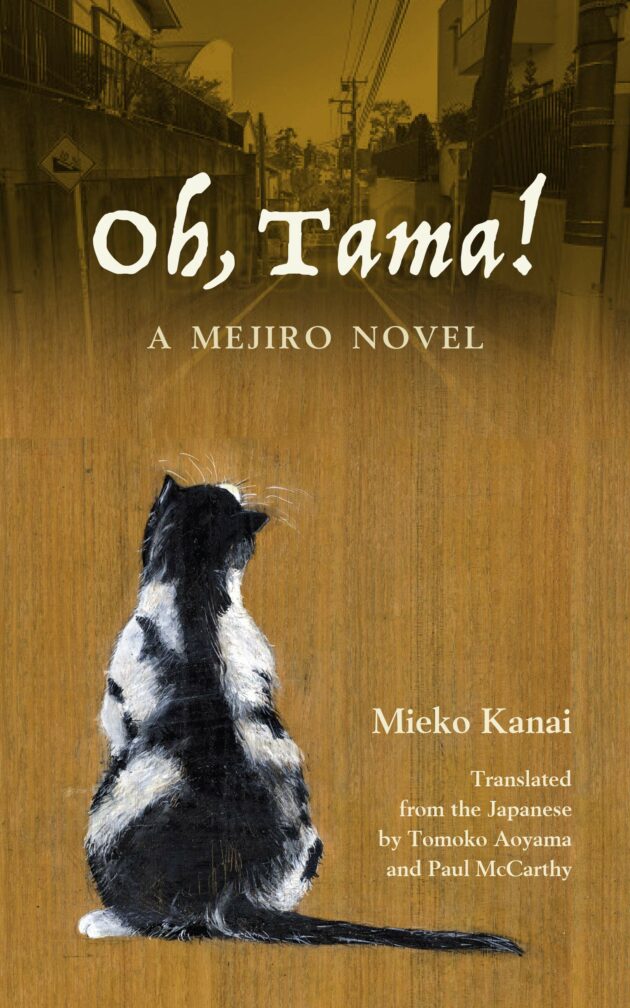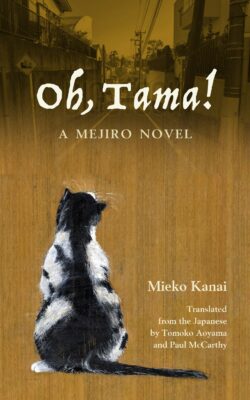
Oh Tama! by Mieko Kanai (translated by Tomoko Aoyama and Paul McCarthy) – reviewed by Patrick McCoy

Oh, Tama! by Mieko Kanai (translated by Tomoko Aoyama and Paul McCarthy). Berkeley, California: Stone Bridge Press, 152 p., $16.95.
Cats have been prominent in Japanese literature since Natsume Soseki made his name with his debut, I am a Cat. Tama, the cat, in Mieko Kanai’s novel Oh, Tama! (translated by Tomoko Aoyama and Paul McCarthy) is the central force that drives the plot of the story. The narrative is propelled by the fact that Tama is in need of a home. Idle freelance photographer Natsuyuki is pressed into looking after the heavily pregnant Tama by his former fling Tsuneko’s half-brother Alexandre, a mixed-raced model and sometimes porn actor who also moves in with Natsuyuki for short periods of time during the course of the novel. It seems that Tsuneko gets around and has told each of her recent lovers that he is the father of her unborn child in order to get money out of them. Subsequently, she has gone on the lam and no one knows where she is.
One of the prospective fathers, Fuyuhiko, a psychiatrist from Kyoto, turns out to be Natsuyuki’s abandoned half-brother. He arrives in Tokyo looking for Tsuneko and also decides to stay on at Natsuyuki’s apartment in the Meijiro, a Tokyo neighborhood that acts as a sort of character in Kanai’s novel. The characters interact and talk about various things such as Japanese and Western writers, actors, artists, and directors. The novel’s meandering movement, and the references to foreign culture, call to mind the writing of Haruki Murakami, though there’s no magical realism in this realistic novel.
Some bits must have come across as more clever in the original Japanese such as the conversation that the characters have about the difference between neko-inazu (poisoned food) and nezumi-inazu (strong cupboards that keep rats out). That being said, there’s something attractive about the voyeuristic feel to the novel as we watch the idiosyncratic people who populate it wander toward the book’s unconventional ending. By the final page of the novel both Alexandre and Fuyuhiko have returned to stay with Natsuyuki in Meijiro, and Tama has given birth to her kittens, all of which have found good homes.
And that, I suppose, is a happy ending.
This novel is one in a series of Meijiro novels (Indian Summer has also been translated into English) that serve as something of a diversion for Kanai, who is, in addition to penning the light-hearted Mejiro novels, is a prize-winning poet, critic, and writer of experimental fiction.
